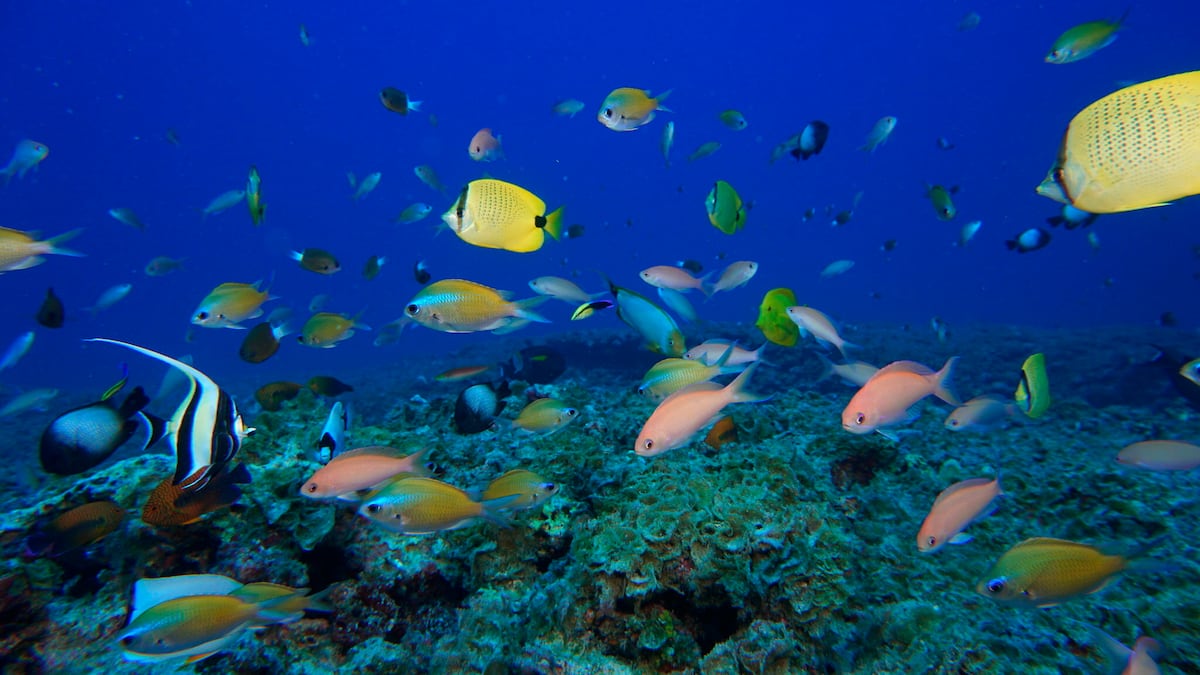Immersive VR Experience: How Virtual Reality Is Turning Empathy into Environmental Action
Environment
2025-03-26 19:56:03Content

Immersive Environmental Awareness: Virtual Reality Transforms Documentary Experience
Researchers at the University of Cologne are pioneering a groundbreaking approach to environmental education by exploring the powerful potential of 360-degree virtual reality documentaries. Led by Professor Dr. Kai Kaspar, a team of media psychologists is investigating how immersive technology can revolutionize the way viewers engage with critical environmental protection narratives.
The innovative study delves into the unique psychological impact of virtual reality documentaries, examining how this cutting-edge medium can create more profound and memorable experiences compared to traditional documentary formats. By placing viewers directly within environmental scenarios, the research aims to enhance emotional connection and understanding of pressing ecological challenges.
Through their comprehensive research, the team seeks to unlock new strategies for environmental communication that go beyond passive observation, potentially transforming how people perceive and respond to global environmental issues.
Immersive Environmental Storytelling: How Virtual Reality Transforms Climate Change Awareness
In an era of technological innovation and environmental consciousness, researchers are exploring groundbreaking methods to engage audiences with critical ecological narratives. The intersection of cutting-edge virtual reality technology and environmental communication represents a pivotal moment in how we understand and interact with complex global challenges.Revolutionizing Environmental Education Through Immersive Experiences
The Psychological Landscape of Virtual Reality Engagement
Virtual reality (VR) has emerged as a transformative medium that transcends traditional documentary storytelling. By creating immersive, three-dimensional environments, researchers can now transport viewers directly into the heart of environmental narratives. The University of Cologne's groundbreaking study delves deep into the psychological mechanisms that make VR such a powerful communication tool. Neuroscientific research suggests that immersive experiences activate multiple sensory pathways simultaneously, creating a more profound emotional and cognitive response compared to traditional media formats. When individuals are surrounded by a 360-degree representation of environmental challenges, they experience a heightened sense of presence and empathy that traditional documentaries struggle to achieve.Cognitive Processing and Emotional Resonance in Environmental Narratives
The human brain processes immersive experiences differently from passive media consumption. Virtual reality documentaries create a unique neurological engagement that bypasses typical cognitive defense mechanisms. By placing viewers directly within environmental scenarios, researchers can potentially trigger more meaningful emotional responses and deeper understanding. Preliminary findings from the University of Cologne's research indicate that participants exposed to VR environmental documentaries demonstrate significantly higher levels of emotional connection and retention of critical ecological information. This suggests that immersive technologies could represent a breakthrough in environmental education and awareness strategies.Technological Innovations in Narrative Design
Advanced VR technologies now enable documentary creators to craft intricate, multi-layered environmental narratives that were previously impossible. Complex ecological systems, climate change impacts, and environmental challenges can be visualized with unprecedented detail and emotional depth. Cutting-edge rendering techniques and spatial audio technologies allow viewers to experience environmental transformations in real-time, creating a sense of immediate personal connection. These technological innovations represent more than mere visual spectacles; they are sophisticated communication tools designed to bridge the gap between scientific understanding and emotional engagement.Ethical Considerations and Future Research Directions
As virtual reality becomes increasingly sophisticated, researchers must carefully navigate the ethical implications of immersive environmental storytelling. Questions surrounding viewer psychological impact, potential trauma, and the responsible representation of ecological challenges become paramount. The University of Cologne's research opens critical dialogues about the potential of immersive technologies to drive meaningful environmental awareness. By understanding the intricate psychological mechanisms underlying VR experiences, researchers can develop more nuanced and effective communication strategies.Global Implications and Transformative Potential
Virtual reality represents more than a technological novelty; it is a potential paradigm shift in how we communicate complex global challenges. Environmental documentaries created through immersive technologies have the power to transcend linguistic, cultural, and geographical barriers, creating a truly universal narrative of ecological interconnectedness. As climate change continues to pose unprecedented global challenges, innovative communication strategies become increasingly crucial. Virtual reality offers a promising avenue for creating empathy, understanding, and motivating collective action on an international scale.RELATED NEWS

Toxic Threat: EPA Pulls Plug on Child Safety Chemical Research Grants

Green Guardrails Down: How Rapid Environmental Deregulation Threatens Public Safety






